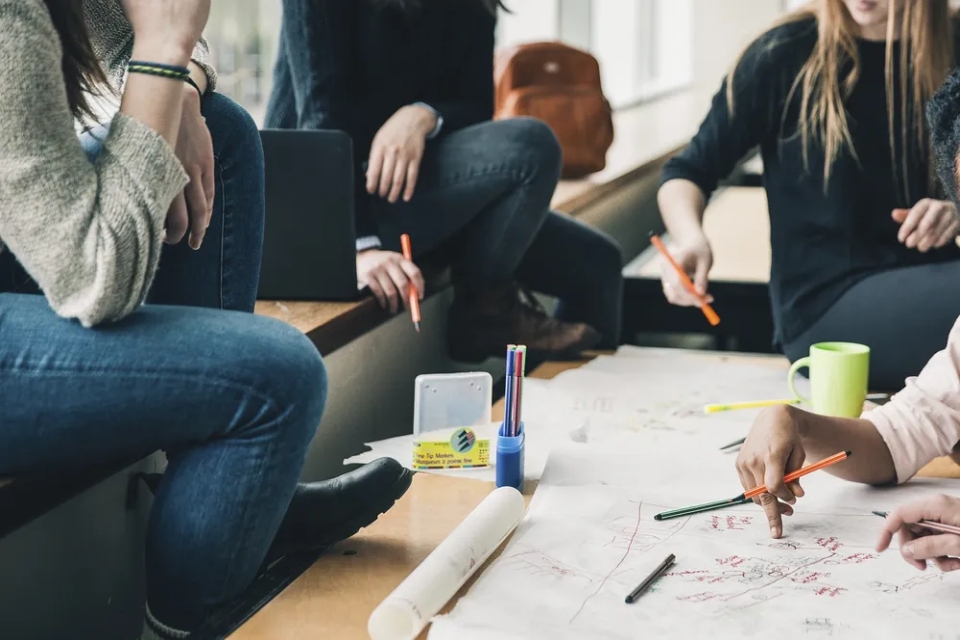In the field of higher education, conventionally a distinction was made between polytechnicals (in Dutch: hbo’s) on the one hand, and research universities on the other. The first with the single task of providing vocational education, while the latter offers academic education and conducts academic research. This segregation is disappearing rapidly, because for a number of years now, it has become Dutch policy for polytechnicals – in the meantime renamed to Universities of Applied Sciences, UASs – to also perform research of a practical nature.

This article was published in SWZ|Maritime’s January 2023 education special. It was written by Dr Ir Herbert Koelman, Lector Maritime Innovative Techniques at NHL Stenden, herbert.koelman@nhlstenden.com. Curious about our education special? Subscribers can read the entire issue online in our archive. Not yet a subscriber? Please visit our Subscriptions page.
The Ministry of Education has provided some structural funding for that, albeit somewhat meagre. Fortunately, many national and international research programmes are being developed these days, often driven by the need for emission reduction and the (expected) potential of digitalisation and artificial intelligence (AI). Quite a few of these programmes are targeted at maritime technology and will have their effects on the maritime sector. To illustrate how this plays out at UASs (with some bias towards Maritiem Instituut Willem Barentsz, MIWB), a few recently acquired projects and steps forward are highlighted below.
Deeper cooperation
A clear step forward concerns deepening the cooperation between research groups of the four maritime UASs (from Vlissingen, Rotterdam, Amsterdam and Terschelling) and research groups with maritime outlook of other UASs, such as from Groningen, Den Haag and Leeuwarden. As a result, collectively, we were able to become members of the Maritime Knowledge Centre, which illustrates a wider interest in practice-oriented research.
Also read: ‘Maritime sector is good for our economy and jobs’
Seanergetic
Two projects with co-funding from the Nederlandse Organisatie voor Wetenschappelijk Onderzoek (NWO, Dutch organisation for scientific research) share their focus on the transition to emission-free shipping. The first is Seanergetic, on the application of fuel cells and batteries in shipping. This project is initiated by TU Delft, and is carried out by several research universities and others from the Dutch maritime research community.
In this project, MIWB has been granted the management of a work package on the development and implementation of a set of tools for the transfer of the knowledge gained in this project, aimed at all varieties of formal education and corporate training. In addition to written materials, this toolset may also encompass a game, a virtual simulator or hands-on activities in a living lab.
Greening inland shipping
The second project is Path2zero, aimed at zero-emission inland shipping. Also a larger project, with 30+ partners from academia, business and public bodies. The contribution of UASs is headed by Rotterdam UAS, with supporting roles of Zeeland UAS and MIWB.
The research role of the latter is focused on data validation and AI, while we have a hidden ambition to process the new knowledge from this project into our educational programmes.
Also read: SWZ|Maritime’s January 2023 issue: Maritime sector has much to offer
EU shipbuilding project
An international project is SEUS, Smart EUropean Shipbuilding, rigged under the banner of the EU Horizon programme, Innovation Action call “Computational tools for shipbuilding”. With participation of Scandinavian universities, maritime industries from northern and southern Europe, and software companies with a big name in industrial software, notably in marine design and engineering. This includes Cadmatic, with roots in Finland and the Netherlands, for example.
MIWB will deliver a significant contribution to this project by:
- The research into and development of a system for data-driven preliminary ship design. This will be a particular challenge, for although it may be driven by data, it will not be driven by big data. Because although a ship design process may deliver some data, it certainly cannot qualify as big data.
- Enhancing the cyber security of the IT framework of the project. After all, the project is on computational tools, which will be dispersed over many parties, countries and facilities, a potential honeypot for villains. The lead in protecting the systems against such threats is taken by the Cyber Security Research group of NHL Stenden.
- The leadership of the work package on dissemination, communication and intellectual property protection and exploitation.
Two open PD positions
The last development to discuss here does not concern technology, instead it involves human capital. Previously in SWZ|Maritime, we reported on the pilot with a Dutch Professional Doctorate (PD) programme, the UAS counterpart of a PhD, in which the maritime UASs participate. Over the past year, quite a lot of effort has gone into setting up the system of regulations, committees and criteria. Now that is behind us, from the beginning of 2023, we can start with the content.
Which is fortunate, because the very projects elaborated upon above contain two topics that are suitable and intended for PD research. One concerns the development of sustainable learning tools for the design, operation, safety aspects, maintenance and lifecycle care of marine energy systems based on fuel cells or batteries. The other research will be on the application of data and machine learning in early ship design.
At the moment of writing of this article, the application procedure for these two PD positions is still open, so those interested may contact the author for more details.
Also read: ‘Hundreds of thousands of seafarers will soon need training to decarbonise shipping’








